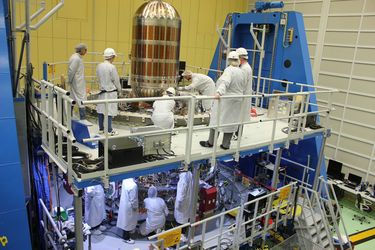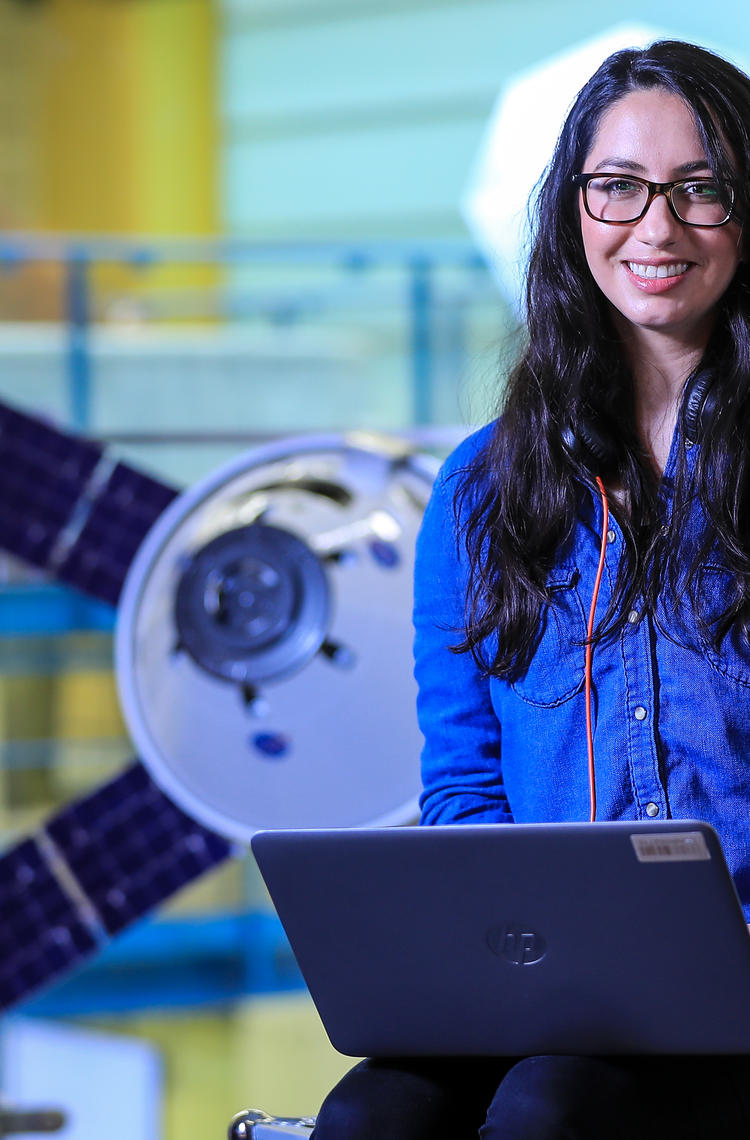In 2025 the first woman will take a walk on the Moon. Gabriela Anguiano Molina is one of many Airbus engineers making sure she gets there safely.
When she was a child, Gabriela would gaze up at the stars at night, dreaming about how one day she would become an astronaut and ride a rocket into space. But as she grew older, she found her true calling back on Earth: creating the technology that will take humans beyond the next frontier, further than anyone can imagine. And that’s exactly what she is doing right now. As Quality Engineer for Airbus’ Moon Programs she is helping to propel the first woman and next men to Earth’s satellite as part of NASA’s Artemis mission. “I am proud to be part of history and help ensure that the crew achieves their goal and gets back safely”, Gabriela says.

With her colleagues in Bremen, Gabriela is working on the European Service Module (ESM) that powers NASA’s Orion spacecraft, supplying astronauts with water and oxygen along the way. There aren’t too many companies around that know how to do this; that’s why NASA chose Airbus as the first European company to power one of its spaceships. And to ensure each ESM is in mint condition for flight, Gabriela constantly reviews test procedures, inspects equipment and makes sure there are no anomalies when it is integrated into the flight hardware in the assembly hall, known as a ‘cleanroom’ since conditions have to be spotlessly clean to avoid contamination in mechanisms. Supervising tests are always a highlight for her: “This is where you can see the outcome of the collective hard work of everyone. Not to mention the opportunity to travel around the world and meet so many wonderful people who share the same passion for space exploration.”
But why is space exploration necessary, how does it improve life back on Earth? Gabriela explains: “We humans are pioneers and explorers by nature, and I believe that what we do and discover helps us become the best versions of ourselves.” Exploration means growing, it provides us with a better understanding of “ourselves, our surroundings, and our origin”. And all this, Gabriela says “enriches our lives and makes us better caretakers of our beautiful planet in order to preserve it as long as we can.”
But not only that: If humans were able to establish a sustainable presence in the harsh environment of the Moon and manage the essentials of life such as food, water and oxygen we could learn lessons from this to improve life back on Earth. “We have infinite possibilities of what we can explore, discover and achieve”, Gabriela says. So when the first woman blasts off to the Moon onboard Artemis III in 2025, she will be among the people cheering the loudest. Even if it is not her riding the rocket. She is just as proud of this accomplishment as if she was on it: “I consider myself a blessed woman as I am living my longtime childhood dream as an engineer. But who knows, life has many turns, and maybe one day I will venture into space.”
More on #NextSpace here!
